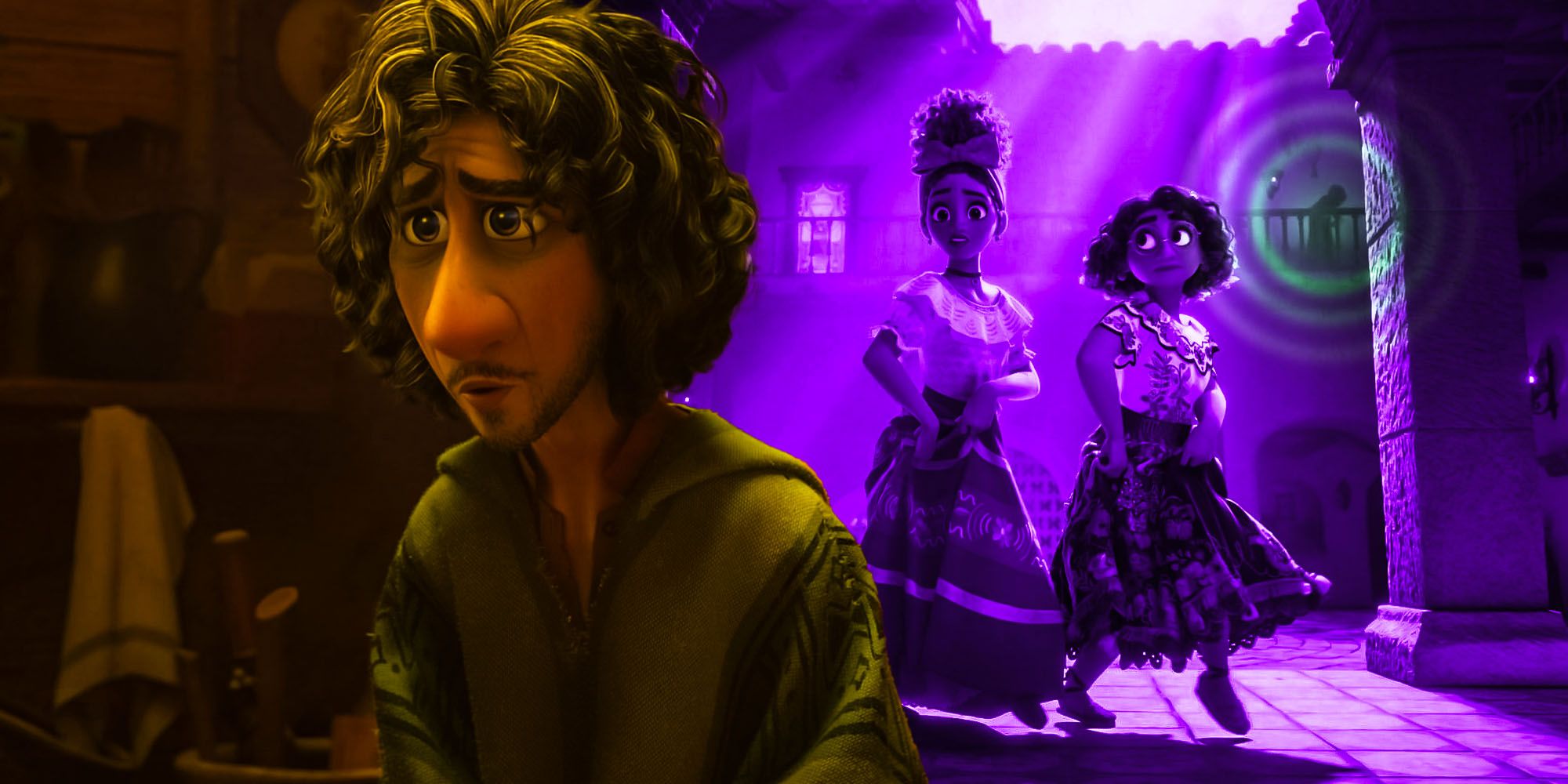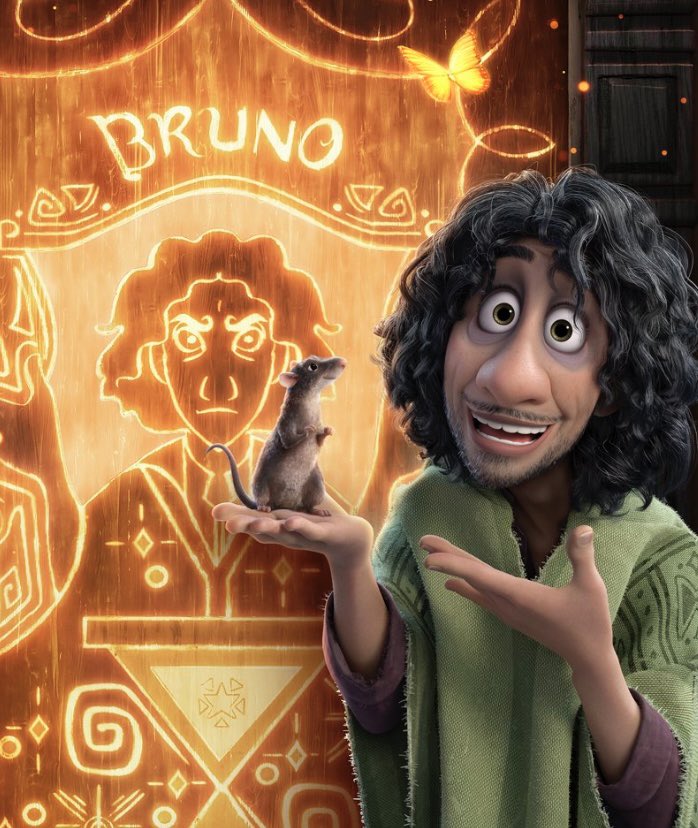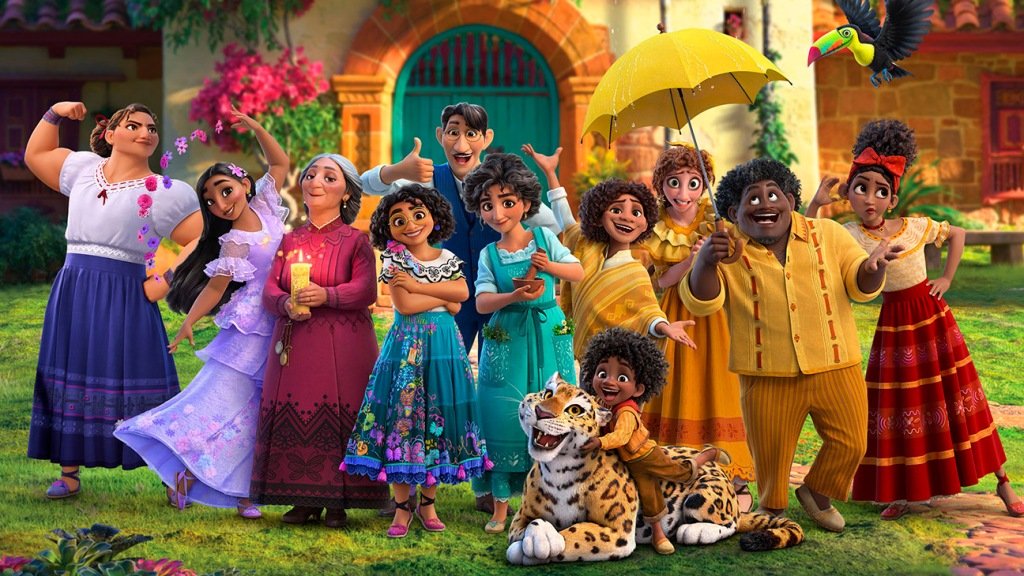Editor’s Note: FII’s #MoodOfTheMonth for February, 2022 is Redefining Love. We invite submissions on the many layers of love, throughout the month. If you’d like to contribute, kindly email your articles to sukanya@feminisminindia.com
Disney’s Academy Award nominated 2021 film Encanto is a computer-animated musical fantasy about a Colombian family, the Madrigals, where each member is “gifted” with magical powers. The Madrigals are loved by the townspeople for their selfless grace, dedication and hard work towards the sustenance of their town. Their Casita – a house which is alive with magic is the source of their powers, with the flames of a burning candle safely ensconced at the top of it.
Encanto is a magical realm that safeguard this community. It is a miracle because history tells us that its existence should not have been possible due to colonial invasion. The magic lies in the impossibility of its existence- a community that thrived in the absence of empirical barbarism and effectively resisted the imposition of the capitalist economy on them.
It is built with love, determination, and an insurmountable sacrifice by Abuela Madrigal, the matriarch of the family. The trauma stays with her and becomes accumulated with the very foundation of the home she builds. The Madrigals, however, are an undemocratic matriarchal family which is deeply imitative of the ethos that plague the hetero-patriarchal family structure.
It is almost as if every single brick of Casita is resting upon the shoulders of each of the “gifted” Madrigal, with Abuela Madrigal at the heart of it. The Madrigals wield their powers with finesse and never falter or show any weakness. The structure of the house itself symbolizes the conventional hetero-patriarchal model of family that assumes everyone would adhere to their roles.
It cannot admit any kind of deviation from these designated roles because that would lead to the collapse of the entire structure. Anyone who strays from their path or falters is shamed into being a castaway- the Bruno.
Who are the Brunos in our lives?
Growing up in brown households, we all have been made aware of one or two “Brunos” in our lives. They become the family’s cautionary tale- someone who should not be talked about. Yet, somehow, they come up in almost every conversation. The hushed voices, the darting eyes of the younger folks hinting at some ‘unspoken’ scandal, the matrons’ heads bowed down with shame and regret, only to end with a definitive, unanimous statement – “we don’t talk about Bruno”.
They don’t talk about Bruno because his very existence is a threat to their family structure and to the town’s administration, at large. Bruno’s departure represents individual choices and freedom. Therefore, he must be written out of the family history. Knowledge about his past might encourage younger children to exercise their free will and follow a similar path of ‘deviance‘
The “Brunos” we know could be an elder sister who has not returned home for years, an aunt who married someone who prays to other Gods, an uncle who has lived with his best friend for decades, a brother put on a pedestal for being “the only son” who miserably failed to deliver all that was expected of him, and so on.
The Madrigals consider their gifts a blessing and make it their responsibility to use their powers to their fullest potential. In doing so, they restrict individual choices and chart out life paths for everyone in the family from the moment they acquire these gifts – the age of five. Bruno, a highly gifted Madrigal, defies this narrative. He fails to bring fruitful news through his gift of clairvoyance.
His method of utilising the gift does not appease the expectation that the town has of him. His power gets perceived as a curse and his presence becomes a dreaded phenomenon for the townsfolk, as well as a source of shame for his family. Unable to readjust himself in such a situation, Bruno chooses to leave.
The lesson that the Madrigals have taught their kids is – ‘if you do not fit in, change yourself.’ In the face of imposed conformity, Bruno chooses self preservation. He exiles himself from all those who could not accept him as he was.
They don’t talk about Bruno because his very existence is a threat to their family structure and to the town’s administration, at large. Bruno’s departure represents individual choices and freedom. Therefore, he must be written out of the family history. Knowledge about his past might encourage younger children to exercise their free will and follow a similar path of ‘deviance‘.
Also read: The Institution Of Family: Assignment Of Gender Roles Begin At Home
When they do talk about Bruno, the Madrigals break out in a song to recount every single mishap that Bruno was responsible for- a reminder of his incompetence and failure. Many attempts are made to erase the existence of the rebels in the family and yet, their shadow looms large over posterity, almost as a cautionary tale.
Without any counter narrative from the person in question, they are villainised and their stories get tainted with prejudice to scare younger children into obedience, and normativity.

How does Encanto resolve the conflict of Bruno?
Encanto shies away from fully realising the generational violence that the hetero-patriarchal family structure metes out to its members when they seek out an identity beyond what is permissible.
As a shocking revelation, the older Madrigals’ and the townsfolk’s aversion towards Bruno gives way to a mood of celebration when Bruno finally emerges over the ruins of Casita. It is almost as if the characters were released out of their stronghold once the magic left them. They could finally acknowledge their flaws and make space for a diverse coexistence.
With this new spirit of love and acceptance, the Madrigals along with the townsfolk build up a new Casita. The magic of the new Casita is stronger because it is built with empathy and has a healing effect even on those who wield it.
A joyful reunion between Bruno and the Madrigals is finally possible because the family broadens their horizon without expecting Bruno to fit in. Encanto tells us that we are not meant to reshape ourselves to fit the idea of the family and the home that we are born into. Rather, the family is meant to remodel itself according to the needs of its members and make itself a home that embraces everyone’s agency to be who they are

Unlike in Encanto, the Brunos that we see around us are very likely to suffer immense loss of their personhood and if they ever try to re-enter a family unit that stands rigid over its archaic foundational values and refuses to embrace change.
Casita, built by Abuela Madrigal, shielded their family and the townsfolk in their times of vulnerability. Even when the danger passed, Abuela Madrigal’s trauma of the colonial violence forces her to hold these shields in place for decades to come afterwards. Living in such a fiercely protective environment restricts the Madrigals’ choices and their opportunity to thrive.
As magic slowly starts to recede, it makes up room for the younger children to finally voice their doubts. Luisa wonders- “If I could shake the crushing weight of expectation, would that free up some room for joy, or relaxation, or simple pleasure?” and Isabella sings “What could I do…. If it just needed to be, and they let me be”.

Casita, which is symbolic of the Madrigal family itself, must crumble and allow the family to rebuild and renegotiate a space where everyone can live freely. Bruno’s re-entrance into the family is possible only because the family itself undergoes a rigorous transformation with the collapse of Casita.
A joyful reunion between Bruno and the Madrigals is finally possible because the family broadens their horizon without expecting Bruno to fit in. Encanto tells us that we are not meant to reshape ourselves to fit the idea of the family and the home that we are born into. Rather, the family is meant to remodel itself according to the needs of its members and make itself a home that embraces everyone’s agency to be who they are.
Also read: Film Review: ‘My Happy Family’ Explores Women’s Agency To Choose Freedom
Featured Image Source: The Hollywood Reporter
About the author(s)
Debabratee (she/they) is a student of English Literature at Jadavpur University. When they are not found reading or writing, they are found running after their pet dog and cuddling with him. They are avid binge-watcher of all kinds of OTT content and like to dissect and analyse them in their free time.




